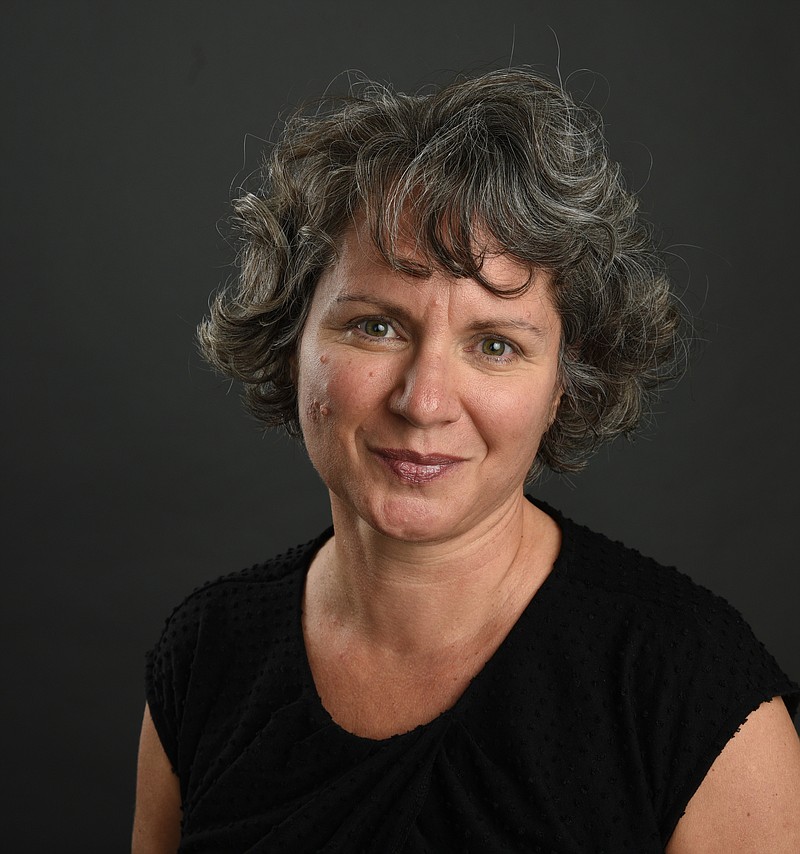It's incredible fun to rejoin the board of the mental health nonprofit Helen Ross McNabb. I'm a boomerang, having served the legacy Fortwood Center several decades ago. Our boards arranged a marriage combining strengths to expand services to East Tennessee's most vulnerable. Now I have the pleasure of spending time with Knoxville-based CEO Jerry Vagnier and his amazing team.
Helen Ross McNabb embraces challenging work helping victims of abuse, trauma and trafficking, counseling people struggling with addiction and working to stabilize the mentally ill to keep them out of the criminal justice system. Especially moving is their work supporting at-risk kids who often underperform in the school system due to family struggles, ADHD or PTSD.
What inspires me is not only the work they do but how they do it. As a student of business, leadership, culture and human performance, it's impressive how Jerry and the team have nurtured a high-performing organizational culture within which they can best serve a crisis-oriented, often dysfunctional client population.
After committee and board meetings, I want to hijack Jerry for the afternoon to download his thinking and approach on what it takes to build, sustain and lead a healthy organization.
What I see is:
» Integrity and trust abound. It's palpable that their ethics derive their ethos - how their culture is manifested through their people and all facets of their work. It's remarkably undramatic, like oxygen and water, imperceptible unless you're missing it.
One might think the undramatic is uninteresting. To contrast, I tend to chase excitement. I understood more about this with The Judgment Index (an assessment tool) which pointed to my McGyver instincts. I love high-challenge, fast-moving environments. I'm the one you send to defuse the bomb, negotiate for the hostages or run into the burning building. When it's too hot for many, it's just right for me. That's not always a good thing.
It's also in those time-compressed, high-pressure, high-stakes environments where the quality of decisions and the actions that follow become the most remarkable or potentially flawed. These moments are especially common in the fluid start-up world where the pace is fast, money is short and "wins" are imperative for survival.
I've found myself at times wondering about tension points between moving with entrepreneurial and opportunistic speed and tempering quick action with the moral obligation to make decisions of integrity, which are often nuanced, rarely derived quickly and often take time to implement. It's in this rapid-fire place that compromises appear that cumulatively and over time, will devalue your code of ethics and erode your corporate ethos.
As I move through leadership circles of diverse organizations, I observe: How does this organization make decisions? And does their behavior (and actions) support decisions made? How do they address the expectations and often competing interests of stakeholders? Do they value and stay true to commitments? Do they talk the talk and more significantly walk the walk?
Which is why I'm in such admiration and awe of team Helen Ross McNabb:
» Leadership keeps a steady pace and minimizes negative surprises. This doesn't mean plodding and slow to change. It means rather than driving a careening and pivoting bus, a leader navigates a cruise ship and wants the passengers – both their team and the people they serve – to have a positive experience which is consistent, predictable and high quality. The long tenure of the team speaks to their "happy factor" and how they feel fulfilled and engaged. This has everything to do with healthy, proactive leadership and management.
» Words and actions align. This is delivering on your brand promise with internal and external stakeholders. In a sector where dysfunction and crises abound, where clients have experienced abuse, trauma and betrayal, it's especially important to model high character, consistency and follow-through.
Helen Ross McNabb is bankable. They have a record of completing projects, honoring their commitments and evidencing a long-term plan and path for sustainability. That's the kind of business you'd invest in. Which is exactly what you'd want to see as a philanthropist considering a prospective gift.
Jerry humbly asked recently if I thought of them as "boring." He knows that with my commitments, I tend to run toward the action and the fire burning; when he doesn't see me it's because they are in such great order and "least needy" of my ventures.
Boring? Nothing could be further from the truth. As they manage strategy, finances, operations, regulations and navigate within an ever-changing political landscape, I know the hard work involved, and the intentional cultivation of both their ethics and ethos required, to remain remarkably, brilliantly undramatic.
Stefanie Crowe is a reformed banker and lifelong wealth adviser. She serves as director of wealth, knowledge & happiness for Stone Bridge Asset Management. She's co-founder and general partner of The JumpFund. Contact her at scrowe@ stonebridge-am.com.
